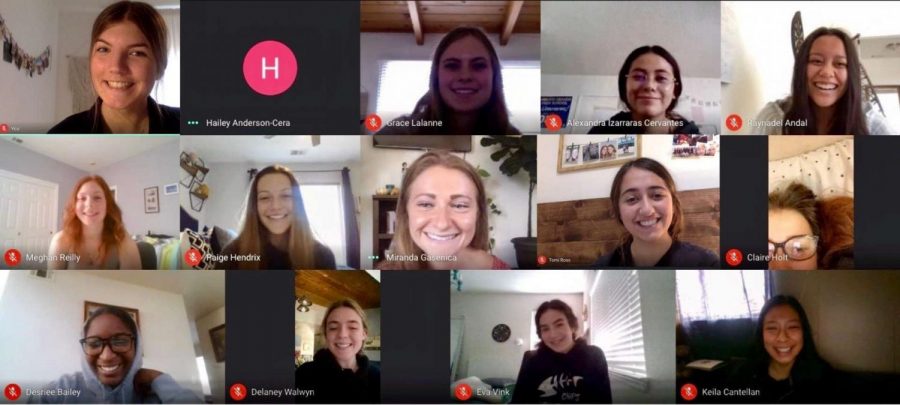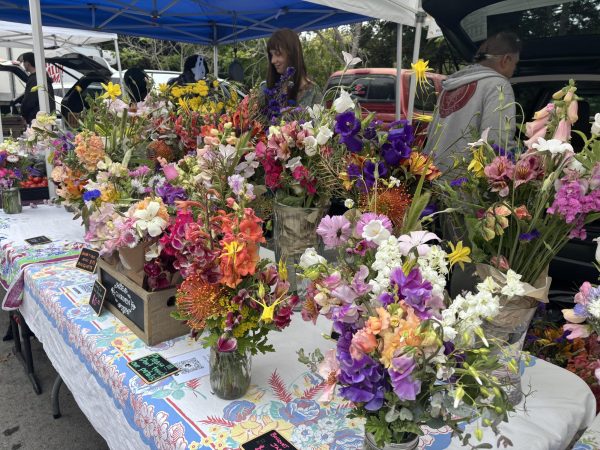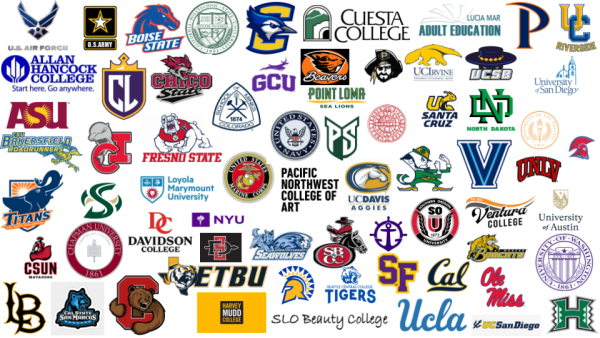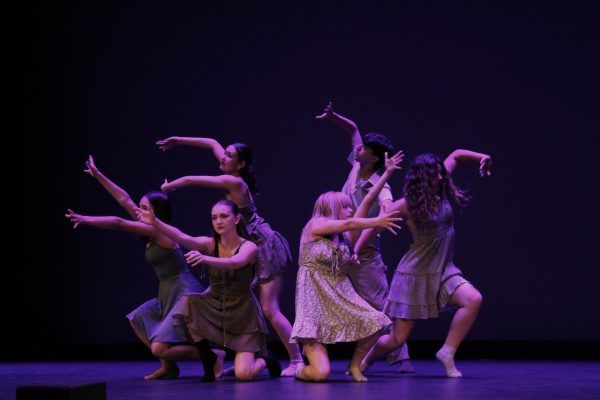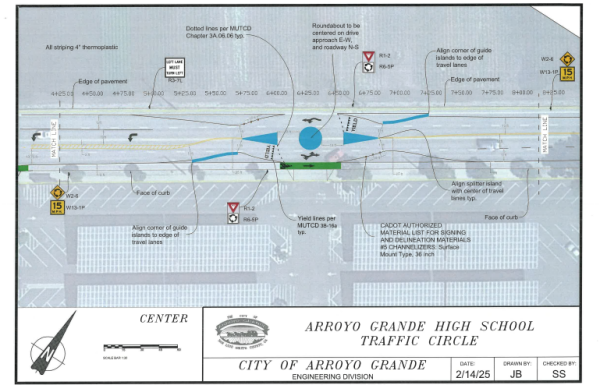AGHS seniors join the PERIOD. movement
Period. club educates students, helps the community fight against period poverty, stigmas
photo courtesy of Lauren Tucker and Period. club
The AGHS Period. club has been meeting virtually to combat period stigmas and brainstorm ways to combat period poverty.
A girl, let’s say her name is Emily, waits in line at the grocery store with her mom. Their basket contains necessities such as water, toothpaste, vegetables, and menstrual pads. Emily’s older sister just started her menstrual cycle and for the next four or so decades, her sister will need menstrual products, like pads, to maintain good hygiene during her cycle to prevent dangerous infections.
It’s their turn to check out at the register. Emily sees that the box of pads, which is taxed, is the most expensive item out of all of their purchases. She looks at the price of a man buying Rogaine, a solution that helps with baldness, and sees that it is a few dollars cheaper than the original price of their pads, and it isn’t taxed. Now Emily is confused.
As they walk out of the store she asks her mom, “Why are menstrual cycles more expensive to take care of than a man’s baldness, and why are pads taxed and his hair growth solution isn’t?”
Her mom sighs and responds, “Because in this world, menstrual cycle products are viewed as a luxury, and that man’s product is a necessity.”
Just like Emily, many women and allies are not satisfied with this reality. How is curing baldness a necessity compared to basic hygiene for menstrual cycles? This is exactly one of the reasons why the PERIOD. movement began in 2014.
“PERIOD. is a global, nonprofit menstrual organization and movement that is working toward period equality and representation everywhere!” exclaimed Lauren Tucker.
Tucker is a senior at AGHS and is the founder and president of AGHS’ first-ever PERIOD. club.
“As President, I run club meetings, connect and plan events with my board members, interact with other club presidents, and facilitate all aspects of our club.”
At a statewide leadership conference, Tucker was placed into a group to brainstorm about service projects to bring back to the group members’ schools, which led to her current and active involvement in the PERIOD. movement.
Tucker explained, “My groupmates and I brainstormed ideas and eventually landed on the topic of menstrual cycles. We made a plan to fight period stigmas and inequalities in our own communities. Though we did not speak of PERIOD. at the conference, I left with a burning desire to research organizations and make a difference on the campus of AGHS. My research eventually led me to PERIOD., and here we are today!”
Paige Hendrix, a senior at AGHS, and the fundraising coordinator for Period. club was in the same group as Tucker at the conference and together they learned about the ambitions and hopes of the PERIOD. Movement and how they could contribute to the cause.
“The main goal is to fight period poverty and stigma through Period.’s three pillars: service, education, and advocacy,” stated Hendrix.
But what is period poverty?
“Period poverty is somewhat of an umbrella term,” Hendrix explained, “but it refers to when women and girls who menstruate don’t have safe access to necessary hygiene products. Many people assume that this issue only plagues third-world countries, and while third-world countries are disproportionately affected, the United States isn’t excluded from period poverty. Low income, homeless, and incarcerated women and girls are among the groups affected in the U.S.”
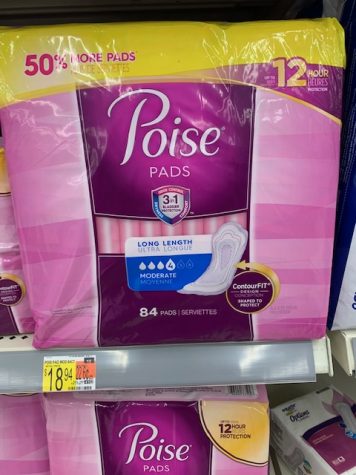
One way PERIOD. is trying to lower prices for menstrual products is by working with people in power and organizations with the resources to end the tax on these products.
“PERIOD. also works with legislators to combat the “Pink Tax,” which refers to how products targeted at women, such as period products, razors, etc. are often charged at higher prices when compared to similar products for men,” stated Hendrix.
Speaking of the Pink Tax, legislators are noticing the protests and outcries. For example, California legislators are pushing for a bill to end the tax on tampons. California Assembly Member Cristina Garcia said, “We are being taxed for being women.”
Even though Tucker, Hendrix, and other PERIOD. Club members can’t be directly involved in the process of a bill being passed, they set goals for themselves and create plans to help combat the local problem of period poverty.
“I would love to see PERIOD. Club continue into the 2021-2022 school year and eventually culminate in getting menstrual products in Arroyo Grande High School bathrooms. Given that I will be graduating in just over two months, I would love to be able to finally run a period product drive-thru,” claimed Tucker.
For a few months now PERIOD. Club has been planning a period drive so students, faculty, and locals can come by and drop off menstrual products and supplies to donate to a reputable organization. It was planned to take place weeks ago, but the changes in local COVID-19 guidelines and concerns changed their initial start date.
“Currently, our donation drive has been put on hold for a couple more weeks, and will likely take place our first week back from spring break. We’re hoping to work with either the SLO Stand Strong Shelter or the Five Cities Homeless Coalition,” confirmed Hendrix.
Tucker added, “There will be a box located in the front office, where individuals can drop unopened packages of period products (pads, tampons, diva cups) and underwear. At the end of the week, we will gather the products and package them into individual bags with various products.”
It is common to overlook the need for menstrual products due to the lack of knowledge and awkwardness of the subject.
In the U.S., 32% of women feel comfortable enough to talk about period-related matters with other females. The stigmas against periods have made many women feel ashamed of who they are, scared to reach out for help, and/or uncomfortable to talk about, let alone acknowledge periods around other people, especially men.
“In third world countries, women are shamed for having a period, are forced to deal with unimaginable social and physical pain, and have inadequate access to proper products. Women in prisons and jails are limited with access to ordinary items to begin with, thus making periods that much more difficult to deal with,” claimed Tucker.
Hendrix added, “In countries like rural Ghana and Kenya, girls will miss several days of school each year due to not having access to sanitary pads. These girls are also at a much higher risk for developing reproductive tract infections and experiencing harassment and anxiety.”
Even though the PERIOD. movement is relatively new, the stigmas against menstruating and the issue of period poverty is not. Like Tucker and Hendrix, other girls across the nation can join the PERIOD. Movement by submitting an application to Period. to start their own chapter (aka club) to help educate others and to play a part in ending period poverty within their own community.
If PERIOD. is successful in their mission, when “Emily” and her mother go to the store in a few years to buy products for Emily, she won’t be taxed for being a woman.

Madelyn Ferreros is a senior this year and is the Head of the Sports Department of the Eagle Times. This will be her first year being a part of the Eagles...

